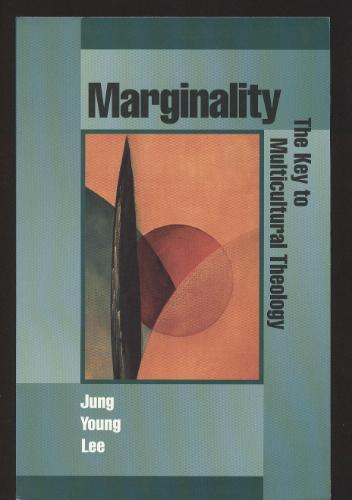Free download.
Book file PDF easily for everyone and every device.
You can download and read online Marginality: The Key to Multicultural Theology file PDF Book only if you are registered here.
And also you can download or read online all Book PDF file that related with Marginality: The Key to Multicultural Theology book.
Happy reading Marginality: The Key to Multicultural Theology Bookeveryone.
Download file Free Book PDF Marginality: The Key to Multicultural Theology at Complete PDF Library.
This Book have some digital formats such us :paperbook, ebook, kindle, epub, fb2 and another formats.
Here is The CompletePDF Book Library.
It's free to register here to get Book file PDF Marginality: The Key to Multicultural Theology Pocket Guide.
Marginality: The Key to Multicultural Theology and millions of other books are available for Amazon Kindle. Marginality: The Key to Multicultural Theology Paperback – July 11, Unlike many theological books, Jung Young Lee's emotional passions are included, revealing to the.
Table of contents
- Critical Analysis of Jung Young Lee's Marginality-New
- Intercultural Theology, Volume Two - InterVarsity Press
- Search This Blog
USD Sign in to Purchase Instantly. Temporarily Out of Stock Online Please check back later for updated availability. Overview "To transcend or to live in-beyond does not mean to be free of the two different worlds in which one exists but to live in both of them without being bound by either of them. Lee aims to address the dilemmas of contextual theology not by moving one or another group from the margin to the center, but by redefining marginality itself as central.
Marginality, he contends, is not only the experience of being outside the dominant group or in-between groups, but also "in-beyond"-a holistic, process-oriented definition that highlights the catalytic, transformative potential of living at the creative nexus of worlds. Lee's insight into marginality leads him directly into a new model for contextual theologies that focuses not on historical experience but on creative potential.
Most importantly, they indicate the necessity of decisive steps being taken to improve the situation. Ayres, Susan. DePauw University, n.
Critical Analysis of Jung Young Lee's Marginality-New
Bammer, Angelika. Partial Visions: Feminism and Utopianism in the s. New York: Routledge, Barr, Marleen. Bartkowski, Frances. Feminist Utopias. Lincoln: U of Nebraska P, Berkson, Dorothy. Knoxville: U of Tennessee P, Booker, Keith M.
- The Crater; Or, Vulcans Peak: A Tale of the Pacific!
- Subscribe to Alban Weekly?
- Most Downloaded Articles.
- Theological Reflections on “Gangnam Style”: Book Review.
The Science Fiction Handbook. Singapore: Fabulous, Cortiel, Jeanne. Liverpool: Liverpool UP, Fancourt, Donna.
Intercultural Theology, Volume Two - InterVarsity Press
Green, Michelle Erica. The Roots and Branches of Arts and Culture. Hollinger, Veronica. Jones, Libby Falk. Lee, Jung Young.
- Educational Work of the Girl Scouts?
- ~ Loving Life!
- Living on the margins away from the centers of power.
- Weakness?
- theologymegandaley;
- 30 Big-Idea Lessons for Small Groups: The Teaching Framework for ANY Text and EVERY Reader (Corwin Literacy).
Marginality: The Key to Multicultural Theology. Minneapolis: Augsburg Fortress, Lefanu, Sarah. In the Chinks of the World Machine. Feminism and Science Fiction. Maciunas, Billie. Macalester College. Makinen, Merja. Excluded due to gender, race, class or social level.

The second one is humiliation. To be humiliated is to be de-humanized. One practice that I try and do in my life, though not consistent, is to see every human being I encounter as indeed that: a human being. Created in the image of God, infinitely valuable, yet of course also marred with the imperfection of sin.
I would love to go through a day where I consciously see every person I meet that way, a precious human worthy of my respect and love.
Search This Blog
And to vow never to humiliate or de-humanize anyone, in any way. Living on the margins can be humiliating, especially if we believe we actually deserve the center. Thirdly according to Lee is the feeling of alienation. On the margins we can feel a distance and alienation from others that can be very crippling. But if we see it as an in-bothness, the distance can disappear.
Fourthly is loneliness , so common to people on the margins. Along with that comes the last one, nothingness , the most extreme and deadly feeling of being on the margins.
- Savory Encounters!
- Marginality: The Key to Multicultural Theology | Fortress Press.
- Barking Dogs.
- The Fun Things to Do in Austin Guide: An informative Austin travel guide highlighting great parks, attractions, tours, and restaurants (U.S. Travel Guides Book 7).
- Text Matters.
- Theological Reflections on “Gangnam Style”: Book Review | Grace Ji-Sun Kim;
- Rome: The Eternal City (6 Book 1);
This is where by not being included and not being seen you begin to feel literally like you are nothing. This is a deadly stage, where nothingness leads to despair and desperation. But we do matter. We are seen.